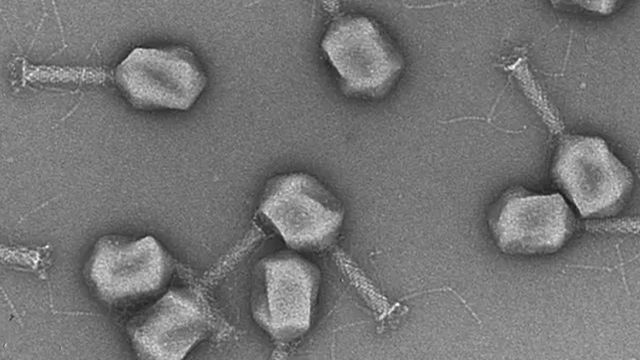Infection
Using Viruses To Treat and Diagnose Bladder Infections
Double-action sniper
Phage therapies have been used for over 100 years but fell into oblivion in Western industrialised countries with the discovery of penicillin. In view of increasing antibiotic resistance, they are currently seeing a renaissance. They also have the decisive advantage of attacking only a single target bacterium, much like a sniper.
However, previous therapeutic approaches have one problem: “Phages aren’t interested in completely killing their host, the pathogenic bacterium,” explains ETH researcher Samuel Kilcher, one of the study’s two final authors. To enhance the phages’ effectiveness, the researchers genetically modified them. The modified phages produce not only new phages inside the infected host bacterium, but also bacteriocins. Once they are released, these bacteria-killing proteins are particularly effective against bacterial strains that have altered parts of their surface in such a way that the phages no longer recognise them. This double-barrelled attack makes the treatment more effective.
From the laboratory to the clinic
In individual cases, such as the recent rescue of a lung patient at the University Hospital of Geneva, phage therapies have been successfully used experimentally. “There are also many academic and commercial clinical trials underway worldwide that are systematically investigating the potential of natural and genetically optimized phages,” says Matthew Dunne, one of the study’s final authors. However, there is a long way to go before such therapies can be applied more widely in Western countries. In addition to extensive clinical studies, regulatory adjustments would also be useful, taking into account the fact that phages are biological entities that co-evolve with their bacterial hosts, i.e., they are constantly evolving.
The present study is a proof of concept. Next, the ETH Zurich researchers, together with their partners from Balgrist University Hospital, will test the efficacy of the new phage therapy in a clinical trial with selected patients.
Reference: Du J, Meile S, Baggenstos J, et al. Enhancing bacteriophage therapeutics through in situ production and release of heterologous antimicrobial effectors. Nat Commun. 2023;14(1):4337. doi: 10.1038/s41467-023-39612-0
This article has been republished from the following materials. Note: material may have been edited for length and content. For further information, please contact the cited source.

